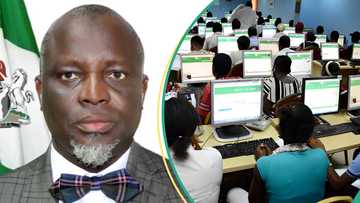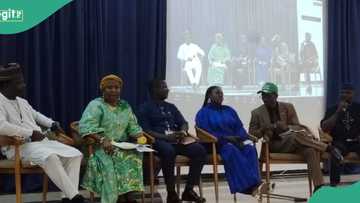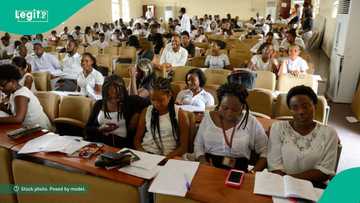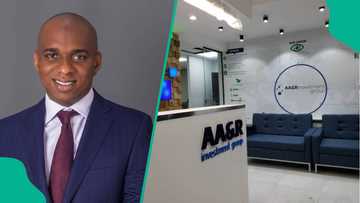10 best rehabilitation centres in Nigeria and their location
Several rehabilitation centres in Nigeria, such as Synapse Services, House of Refuge, and Neuropsychiatric Hospital, Aro, work to address the widespread problem of substance abuse. Dr. Sa’adatu Adamu, a mental health expert, provides insights on rehabilitation challenges and factors individuals should consider before seeking treatment.

Source: UGC
TABLE OF CONTENTS
- Key takeaways
- The top rehabilitation centres in Nigeria
- 1. Synapse Services
- 2. Newlife Specialist Hospital and Rehab Center
- 3. House of Refuge
- 4. Adicare Rehabilitation Home
- 5. Neuropsychiatric Hospital, Aro
- 6. Christ Against Drug Abuse Ministry (CADAM)
- 7. Melville Healthcare
- 8. Antinarcotics Revolutionary Chaplaincy (ARC)
- 9. Falade Traditional Healing Center
- 10. Guiding Light Foundation Rehab Clinic
- The real challenges: what’s hurting rehab centers in Nigeria
- What to consider before enrolling in a rehab
- The road ahead: solutions for the future
Key takeaways
- Lagos hosts several key facilities, including Adicare Rehabilitation Home and the Christ Against Drug Abuse Ministry (CADAM).
- Abuja is also home to private rehabilitation providers, such as Newlife Specialist Hospital and Rehab Center, and Melville Healthcare.
- Some facilities offer specialized programs, such as Christian-based care or traditional healing methods, including the Antinarcotics Revolutionary Chaplaincy (ARC) and the Falade Traditional Healing Center.
- Stigma and cultural beliefs remain the biggest barriers affecting rehabilitation in Nigeria.
- Personal willingness and family support are the most crucial factors for a patient’s recovery journey.
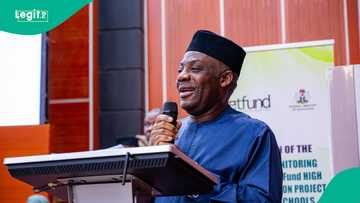
Read also
Content creation, bricklaying: Full list of 26 trades FG unveiled for technical education curriculum
The top rehabilitation centres in Nigeria
Where can one go for rehab in Nigeria? Here is a list of rehabilitation centres in Nigeria to consider, and it is not presented in any particular order of ranking or alphabet.
1. Synapse Services
Synapse Services is the largest private mental healthcare provider in West Africa. The facility has provided over a decade of high-quality specialist mental healthcare services in the country. They offer treatment for numerous conditions, including the use of advanced technology like the Repetitive Transcranial Magnetic Stimulation (rTMS) machine for addiction treatment.
The rehab centre currently works on treating over 45 substance abuse-related conditions for Nigerians and foreigners in the country.
- Location: Plot 238, Off Norbert E Offor Street, Jahi, Abuja
- Telephone: 0905 690 6007; 0915 459 0073
- Email: azalea@synapseservices.org
2. Newlife Specialist Hospital and Rehab Center
The Newlife Hospital and Rehab Center provides a range of mental health and addiction treatments at its various camps and rehab centers. The professionals at this facility deal with issues such as alcohol and drug addictions, stress, depression, anxiety, eating disorders, and obsessive-compulsive disorders.
- Location: No. 6 Olufemi Oguntuyi Close, Army Post Housing Estate, 2nd Gate, Kurudu, Abuja
- Telephone: +2347063025917
- Email: newlifehospitalandrehab.com.ng

Source: UGC
3. House of Refuge
House of Refuge, powered by the Freedom Foundation, is a drug rehabilitation centre in Lagos. It provides services to help people suffering from alcohol and drug dependencies. The centre deals with substance-related issues such as addiction, anxiety, and depression.
- Location: 18, Jimoh Balogun Street, Off CMD Road, Ketu, Lagos
- Telephone: +234 808 729 0000
4. Adicare Rehabilitation Home
Adicare Rehabilitation Home is a Lagos-based humanitarian organization that was founded in 2014. Its founders had the vision to create a society where there is no stigmatization of mentally ill persons or those with substance addictions.
Since its inception, the facility has carried out various projects, including the hugely popular 'remove the rag' project. The project involved reaching out to ten mentally ill persons and taking them off the streets of Lagos. The people are then given medical attention, cleaning, clothing, feeding, and rehabilitation services.
- Location: 59 Old Otta Road, Off AIT Alagbado, Lagos
- Telephone: 08033319334, 08106899098
- Email: ezeveronica1972@adicarerehab
5. Neuropsychiatric Hospital, Aro
The Neuropsychiatric Hospital Aro is a federal institution that provides mental healthcare and therapeutic programs. It has a collaboration with the World Health Organization (WHO) as a centre for research and training in mental health. It is also one of the most well-known and respected public mental health facilities in Nigeria.
- Location: Abeokuta, Ogun state
- Telephone: +234 8038422422, +234 9036380203
- Email: provost@neuroaro.gov.ng
6. Christ Against Drug Abuse Ministry (CADAM)
CADAM is a faith-based residential rehabilitation program with counseling and reintegration support, operated by the Redeemed Christian Church of God (RCCG). Their centres (located in Lagos and Ogun states) are open to both male and female adults aged 18 years and above.
- Location: No. 6 Hebron Street, Estate 11, opposite White House, Redemption City, Ogun State.
- Telephone: +234 703 503 8709
- Email: info@cadam.org.ng
7. Melville Healthcare
Melville Healthcare is run by a team of professionals dedicated to helping those with mental and emotional problems resulting from addictions and substance abuse. The facility has psychiatric nurses, clinical psychologists, psychotherapists, occupational therapists, and counsellors.
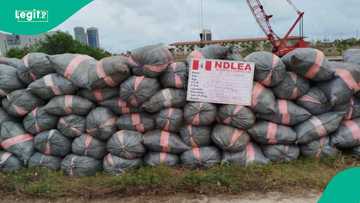
Read also
NDLEA smashes international drug syndicate operating between Nigeria, UK, Brazil, Australia and UAE
Additionally, Melville Healthcare offers custom-tailored programs for its clients to better tackle individual problems. Those looking for the best rehabilitation centre in Nigeria won't go wrong with this one.
- Location: 69 Gwarinpa, Abuja
- Telephone: 09096289714, 08185011289, +13473778409
- Email: info@melvillehealthcareresources.com

Source: UGC
8. Antinarcotics Revolutionary Chaplaincy (ARC)
The ARC is a Christian-based rehab focused on helping individuals struggling with alcohol and drug addiction. Here are some of the means you can reach the facility:
- Location: Elder Sunny Estate, Abuja Municipality
- Telephone: 08098165111
9. Falade Traditional Healing Center
This rehab centre in Nigeria was established in February 2007. Unlike most modern-day rehab centres that are centred on modern medicine, Falade offers complete herbal and traditional medicine-based rehabilitation. The founders believed that traditional medicine is key to getting substance abusers back on track.
- Location: 76 Kafe District, Jukwoyi, Abuja
- Email: faladeherbal@gmail.com
- Telephone: +234 033807325, +234033807325
10. Guiding Light Foundation Rehab Clinic
Guiding Light Recovery is a non-profit rehab offering psychiatric and psychological care. The institution's 4-6 months residential program combines evidence-based practices, life coaching, therapy, support groups, spiritual direction, and resources to equip men to stay sober and live life in a new way.
- Location: 1 Gentle Drive, Rainbow Estate, FH Lugbe, Abuja
- Email: guidinglightfoundation2@yahoo.com
- Telephone: 0810 917 1411

Source: UGC
The real challenges: what’s hurting rehab centers in Nigeria
Dr. Sa’adatu Adamu, Founder of the Secure-D-Future Initiative and mental health advocate, explained in an interview that the major problems of running rehabilitation centers in Nigeria are deeply rooted in society. She mentioned:
- Stigma and cultural beliefs: “People often don’t want to be associated with rehabilitation facilities, especially neuropsychiatric hospitals, because of the shame attached.” This stigma is the main barrier preventing many from seeking the needed help.
- Limited access: Rehabilitation centers are scarce, making care difficult to access.
- Shortage of trained professionals: “We are simply not enough,” Dr. Adamu notes, highlighting a gap between available skilled manpower and rising demand.
- Weak policy implementation: Nigeria has a Mental Health Act, but its execution remains uncertain.
- Funding: Rehabilitation is expensive and often unaffordable for families. High costs of treatment and medication prevent many Nigerians from long-term recovery. This financial barrier limits access and sustainability.
Dr. Adamu also said that despite some policies and partnerships, such as federal neuropsychiatric facilities and the National Drug Law Enforcement Agency (NDLEA), rehabilitation services are hampered by limited resources, staff shortages, and cultural stigma, making them underutilized.
Unfortunately, stigma discourages many. Nobody wants to admit they’ve been to Aro or Yaba. Even with good policies, cultural beliefs and stigma persist as barriers. That’s why creating awareness and normalizing conversations around mental health is so important. Without this, supportive structures may not achieve their full impact.
Gaps in specialized care
Dr. Adamu notes that teenagers often face significant challenges in accessing specialized support. According to her, government-operated centers often lack adequately trained personnel and sometimes fail to meet the basic needs of these young patients. In contrast, while private facilities usually offer better equipment and services, they remain out of reach for most, with their fees ranging from ₦250,000 to ₦3 million per month.
What to consider before enrolling in a rehab
When choosing a rehabilitation center, Dr. Adamu emphasizes that successful treatment depends on the individual's attitude, willingness to participate, and a strong support network. The physical facility alone cannot ensure recovery. She said:
- Be open-minded: Recovery begins with willingness, patience, and readiness to change.
- Rehab is a journey: Treatment may last three to six months or more and requires commitment.
- Family support can significantly aid recovery: The expert explains that, although family involvement is valuable, it is not a legal requirement for admission to a rehabilitation program.
Adults have the right to decide for themselves whether to enter rehab. The only time you can force admission is when an individual poses a clear danger to themselves, their family, or the community. Otherwise, forcing people into rehab usually backfires.
Many relapse after multiple admissions because they went unwillingly. True recovery starts with personal willingness. Family support enhances that willingness, but it cannot replace it.
The road ahead: solutions for the future
Dr. Adamu offers three urgent recommendations to improve rehab centres:
- Promote openness about mental health through sustained awareness campaigns to reduce stigma and boost understanding.
- Train more professionals: The need to equip not just psychiatrists, but also social workers, counselors, healthcare providers, teachers, and parents with basic mental health skills.
- Strengthen reintegration: Society should support individuals in recovery, rather than blaming them. She said:
We must accept that drug use and mental illness are health conditions, not moral failings. Until we start treating substance use as a brain disease, rather than a crime or weakness, people will continue to suffer in silence.
Mental health is a crucial component of the national infrastructure, and opening up conversations will really strengthen individuals and the community. It is important that we break the silence and promote professional services or support.
Hopefully, decriminalizing suicide attempts one day will come to an end in Nigeria, and we will have laws that can support individuals struggling with mental health issues, and also understand that suicide is also classified under the DSM-5 as a mental health issue.
The various rehabilitation centres in Nigeria play a huge role in enhancing the mental and emotional well-being of people dealing with substance abuse. These facilities help their clients overcome their addictions and any other adverse problems arising from the addictions.
DISCLAIMER: This article is intended for general informational purposes only and does not address individual circumstances. It is not a substitute for professional advice or help and should not be relied on to make decisions of any kind. Any action you take upon the information presented in this article is strictly at your own risk and responsibility!
READ ALSO: Types of courts in Nigeria and their functions explained
Legit.ng recently published an article about the types of courts in Nigeria and their functions. The Judiciary is one of the three arms of the Nigerian government. It is mandated to adjudicate disputes arising between individuals, governments, and corporate entities in their inter-relationships with one another within or outside the country under the law.
There are different types of courts in Nigeria, all part of the country's Judiciary. The courts exist in a hierarchical order, with those above being superior to those below. These bodies also have varying jurisdictions.
Source: Legit.ng

Jackline Wangare (Lifestyle writer) Jackline Simwa is a content writer at Legit.ng, where she has worked since mid-2021. She tackles diverse topics, including finance, entertainment, sports, and lifestyle. Previously, she worked at The Campanile by Kenyatta University. She has more than five years in writing. Jackline graduated with a Bachelor’s degree in Economics (2019) and a Diploma in Marketing (2015) from Kenyatta University. In 2023, Jackline finished the AFP course on Digital Investigation Techniques and Google News Initiative course in 2024. Email: simwajackie2022@gmail.com.

Adrianna Simwa (Lifestyle writer) Adrianna Simwa is a content writer at Legit.ng where she has worked since mid-2022. She has written for many periodicals on a variety of subjects, including news, celebrities, and lifestyle, for more than three years. She has worked for The Hoth, The Standard Group and Triple P Media. Adrianna graduated from Nairobi University with a Bachelor of Fine Arts (BFA) in 2020. In 2023, Simwa finished the AFP course on Digital Investigation Techniques. You can reach her through her email: adriannasimwa@gmail.com



